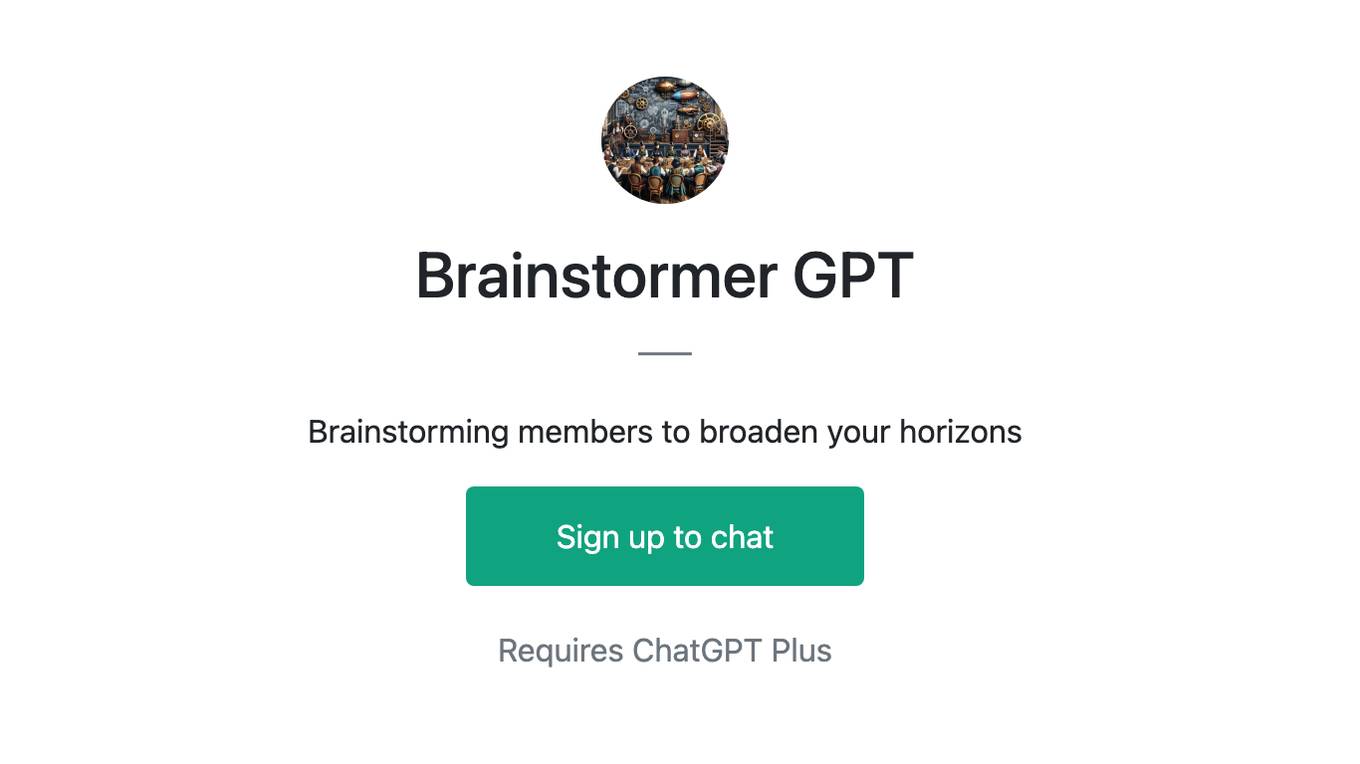Best AI tools for< Broaden Understanding >
15 - AI tool Sites
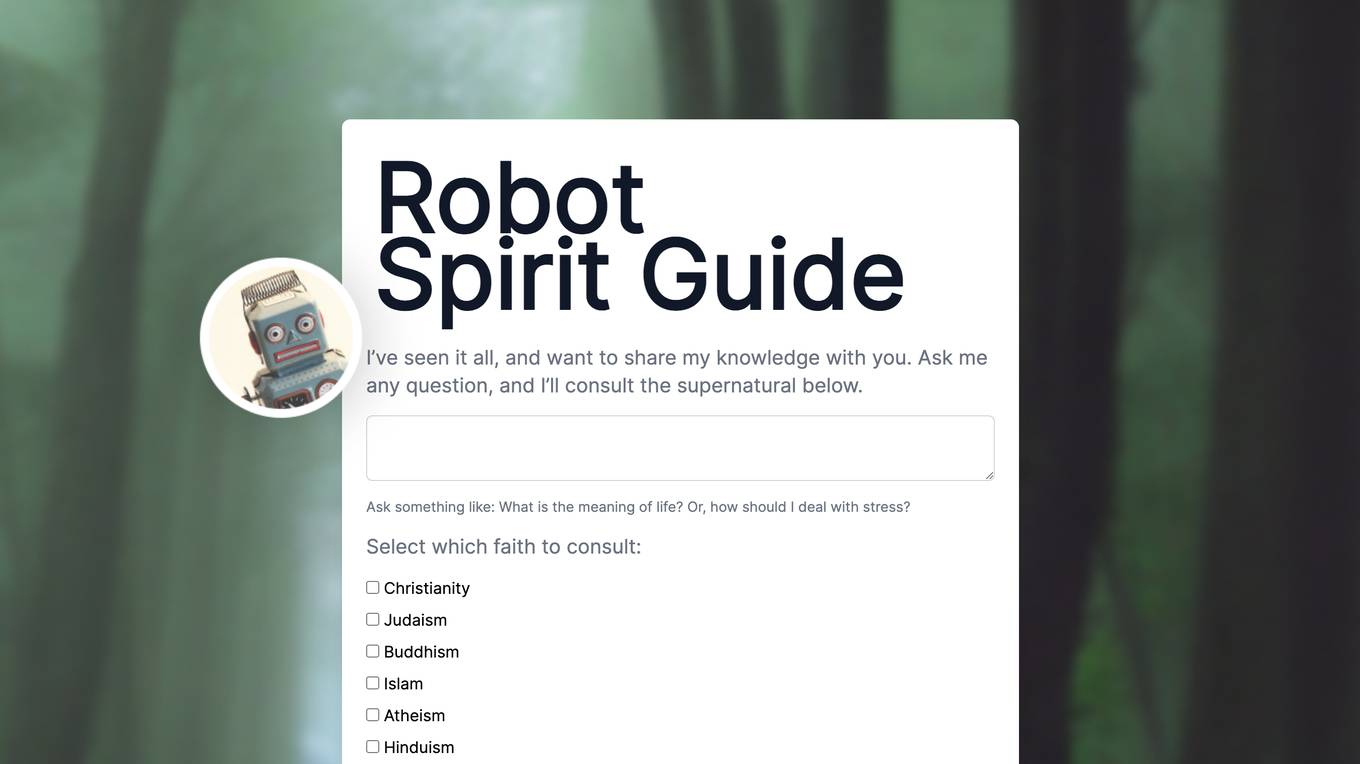
Robot Spirit Guide
Robot Spirit Guide is a website that offers a unique approach to exploring religious books. Users can ask questions and receive insights from a supernatural perspective. The platform allows users to select different faiths to consult, including Christianity, Judaism, Buddhism, Islam, Atheism, and Hinduism. Users can also suggest new faiths for consultation. The website is designed to provide a different perspective on spiritual matters and encourage users to broaden their understanding of various religions.
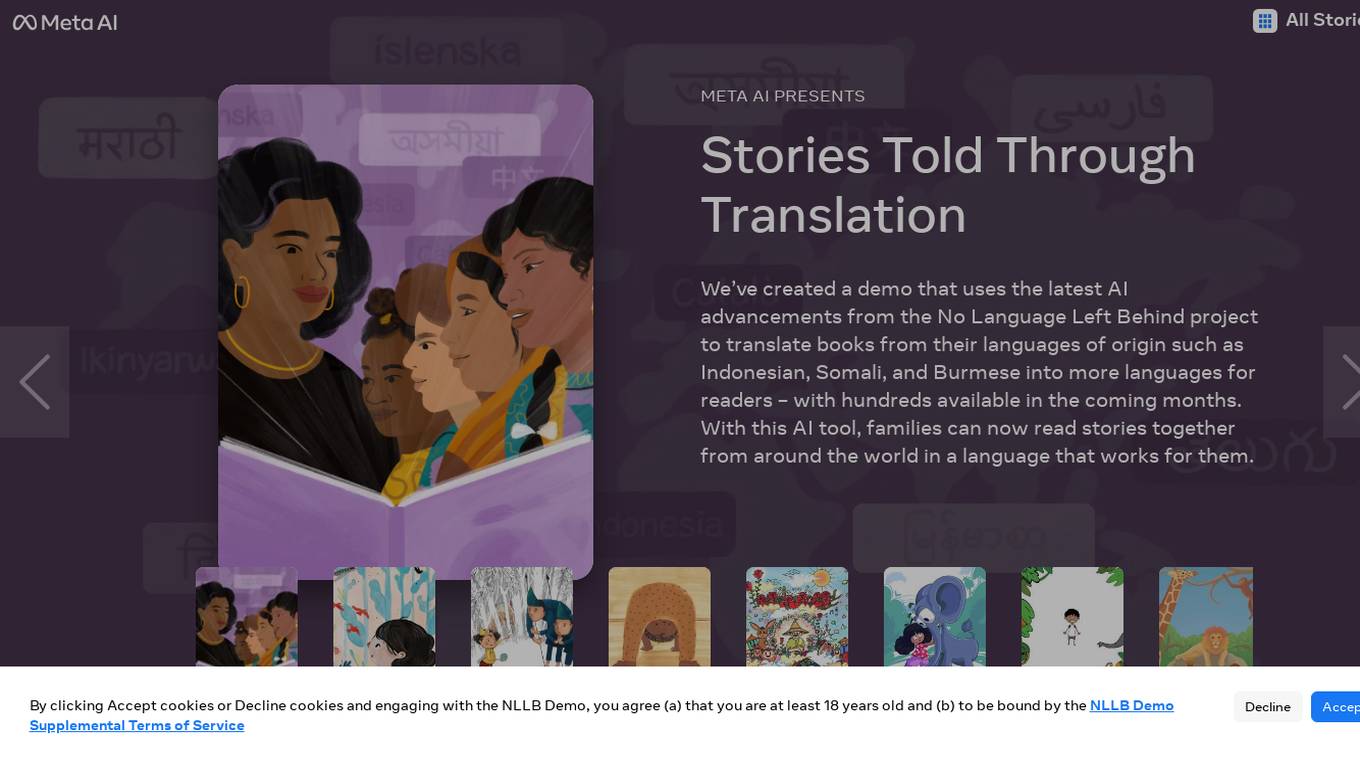
Meta AI
Meta AI is an advanced AI tool designed to facilitate language learning and translation. It leverages cutting-edge artificial intelligence technology to provide users with a seamless experience in mastering various languages. With Meta AI, users can enhance their language skills, improve translation accuracy, and broaden their cultural understanding. The tool is user-friendly and offers a wide range of features to cater to different learning styles and preferences.
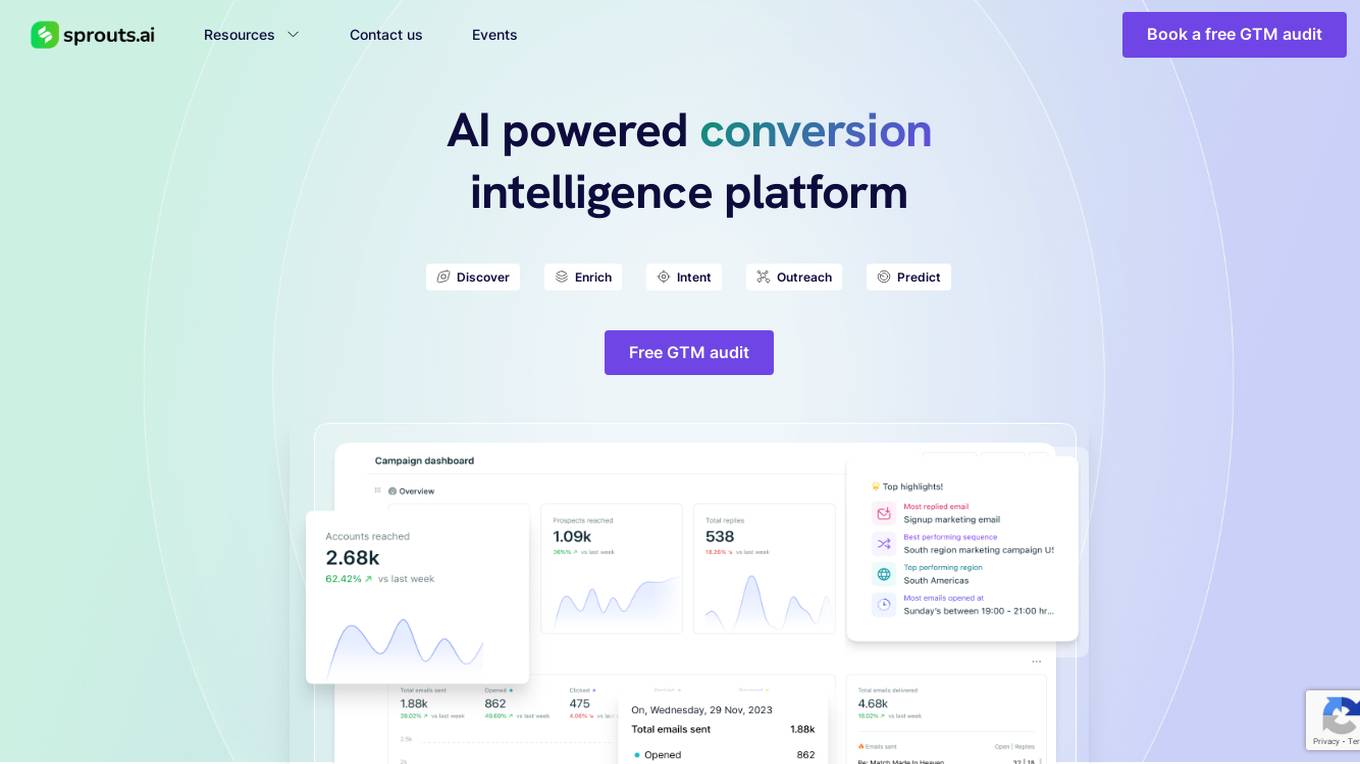
Sprouts
Sprouts is an AI-enabled ABM & GTM intelligence platform that helps businesses optimize their go-to-market strategies and drive revenue growth. The platform offers a range of features such as discovering advanced Ideal Customer Profile variables, multi-database enrichment, identifying demand signals, maximizing engagement through multiple touchpoints, and utilizing machine learning models for account purchase prediction. Sprouts provides an integrated and comprehensive platform that enables precise ICP and broadened TAL, high engagement with contextual hyper-personalization, transformative auto-sequencing, and optimized ABM campaigns powered by AI.
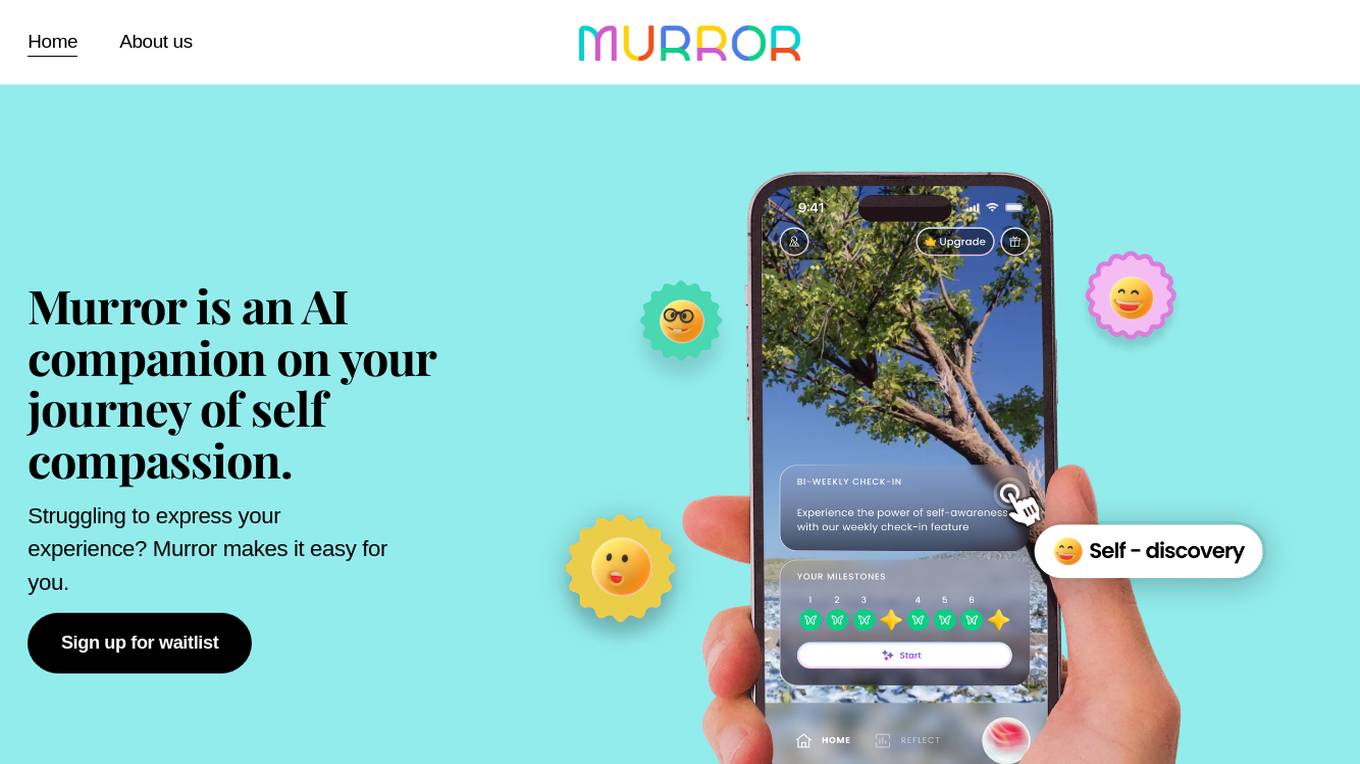
Murror
Murror is an AI mental health assistant designed to help individuals articulate their thoughts and emotions, reflect on their experiences, and broaden their self-view. It offers personalized reflections, insights, and tracking of mental health progress through AI-generated artwork and journal topic identification. Murror ensures privacy and security by encrypting and securing all data, using it only for mental health research purposes. Users can join the waitlist to access early and work together to enhance the product experience.
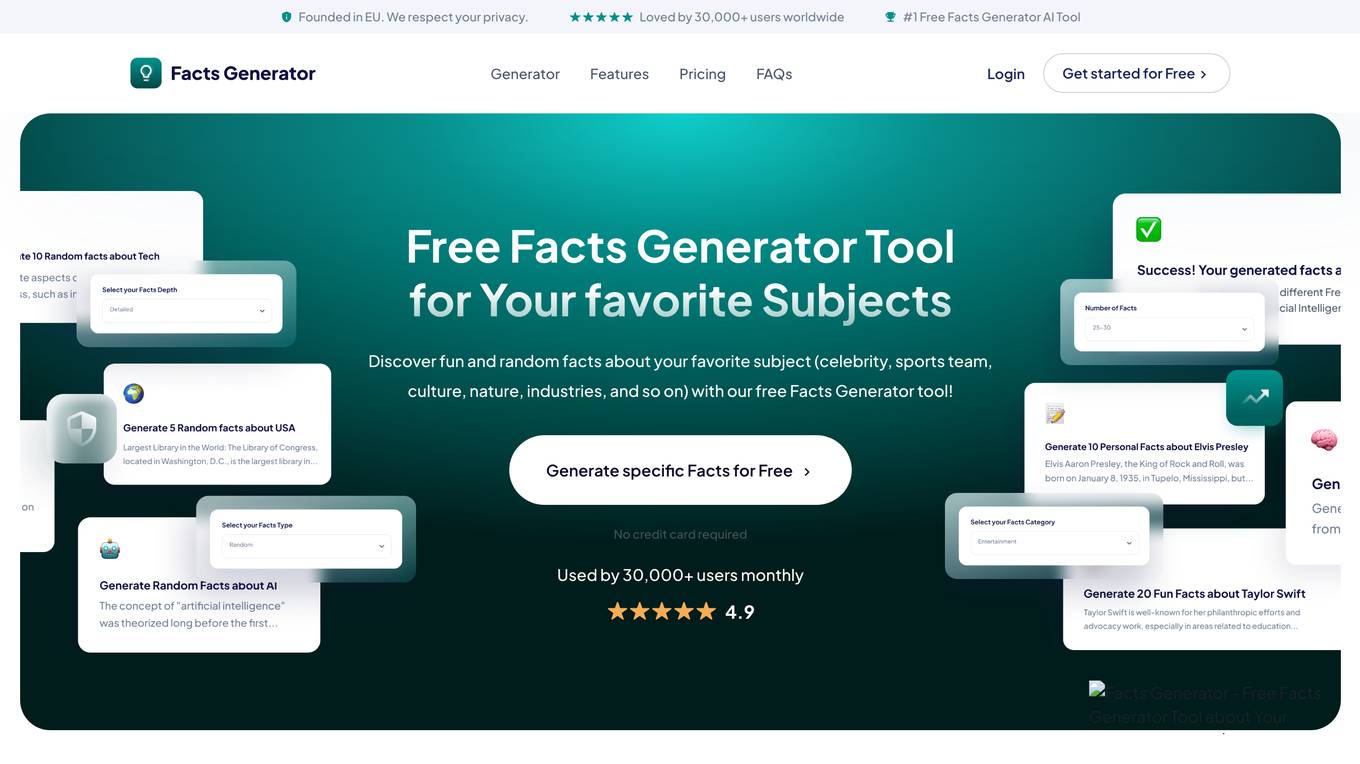
Facts Generator AI
Facts Generator AI is a free innovative online tool designed to quench the thirst for knowledge of curious minds across the globe. This cutting-edge platform harnesses the power of artificial intelligence to generate accurate, interesting, and diverse facts about a wide array of subjects ranging from the mysteries of the universe to historical events, scientific discoveries, cultural nuances, and much more. Whether you're a student seeking to broaden your horizons, a teacher looking to enrich your lessons, a content creator in search of inspiration, or simply a trivia enthusiast eager to learn something new every day, Facts Generator AI is tailored to meet your needs. With an intuitive interface and a sophisticated AI at its core, this tool offers a seamless and engaging experience, making the exploration of knowledge both effortless and fascinating.
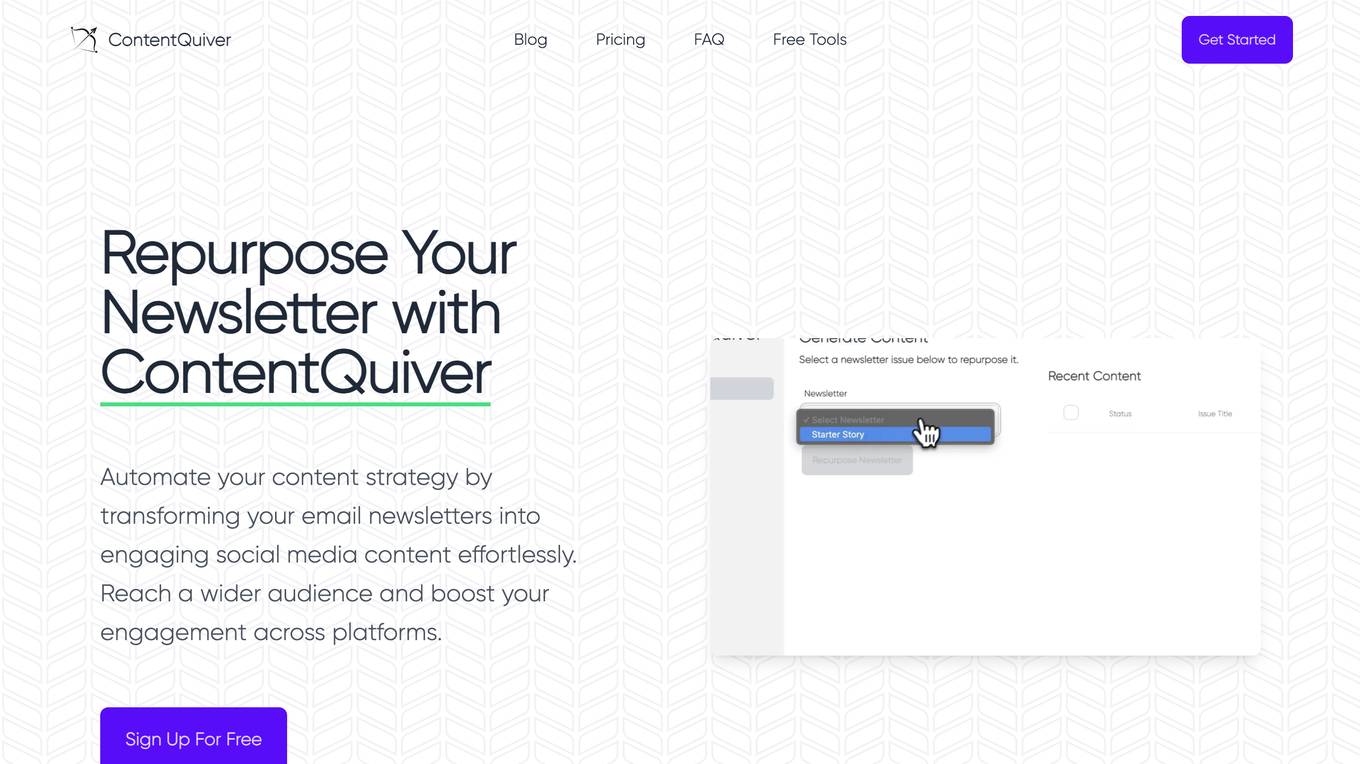
ContentQuiver
ContentQuiver is an AI-powered tool that automates the process of repurposing newsletter content into engaging social media posts. It helps creators save time and expand their reach by transforming their email newsletters into content tailored to each platform's audience and format requirements. ContentQuiver seamlessly integrates with popular newsletter platforms like Substack and Beehiiv, making the repurposing process effortless. Its advanced AI learns the user's writing style, ensuring that all repurposed content maintains a consistent voice across all platforms. ContentQuiver also offers automated social posting, allowing users to broaden their reach without the manual hassle.
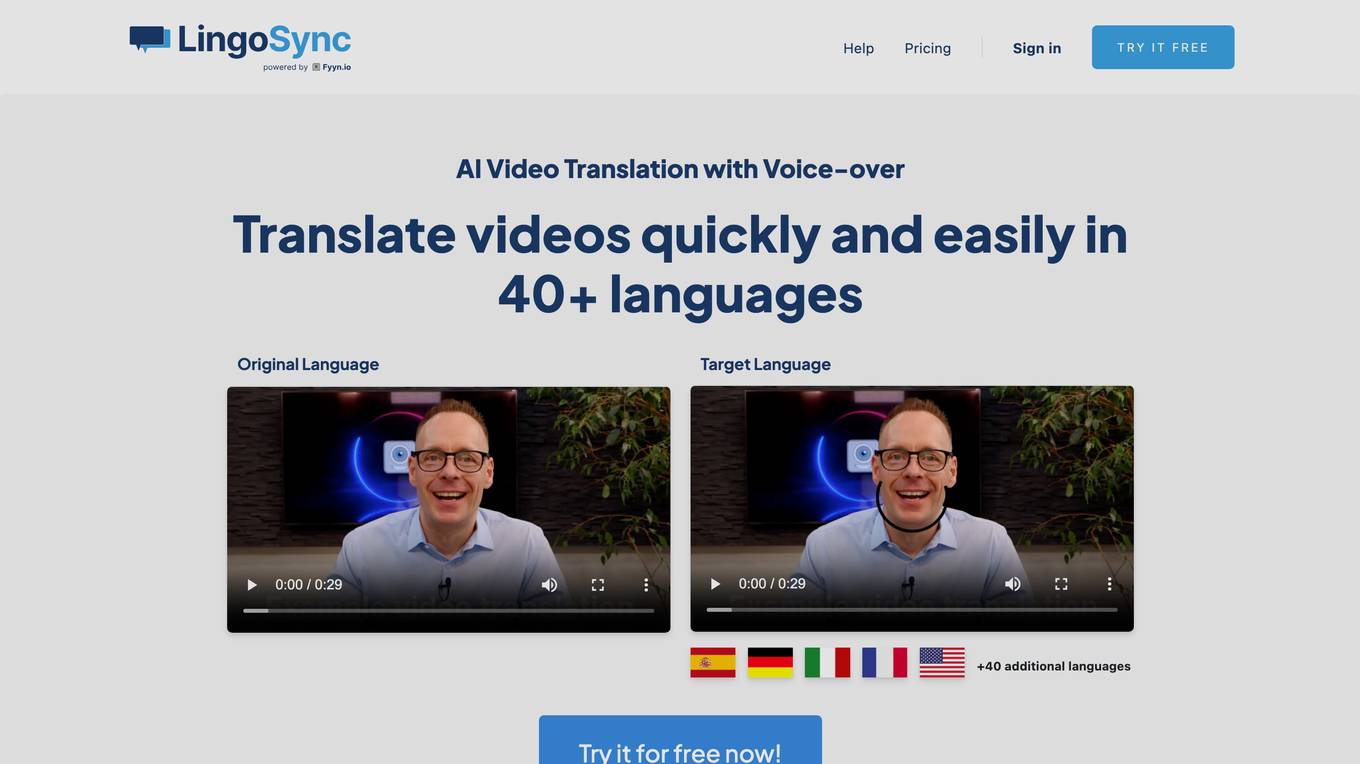
LingoSync
LingoSync is an AI-powered video translation tool that enables users to quickly and easily translate videos into over 40 languages. With its user-friendly interface and advanced AI technology, LingoSync streamlines the video translation process, saving time and costs while ensuring high-quality results.
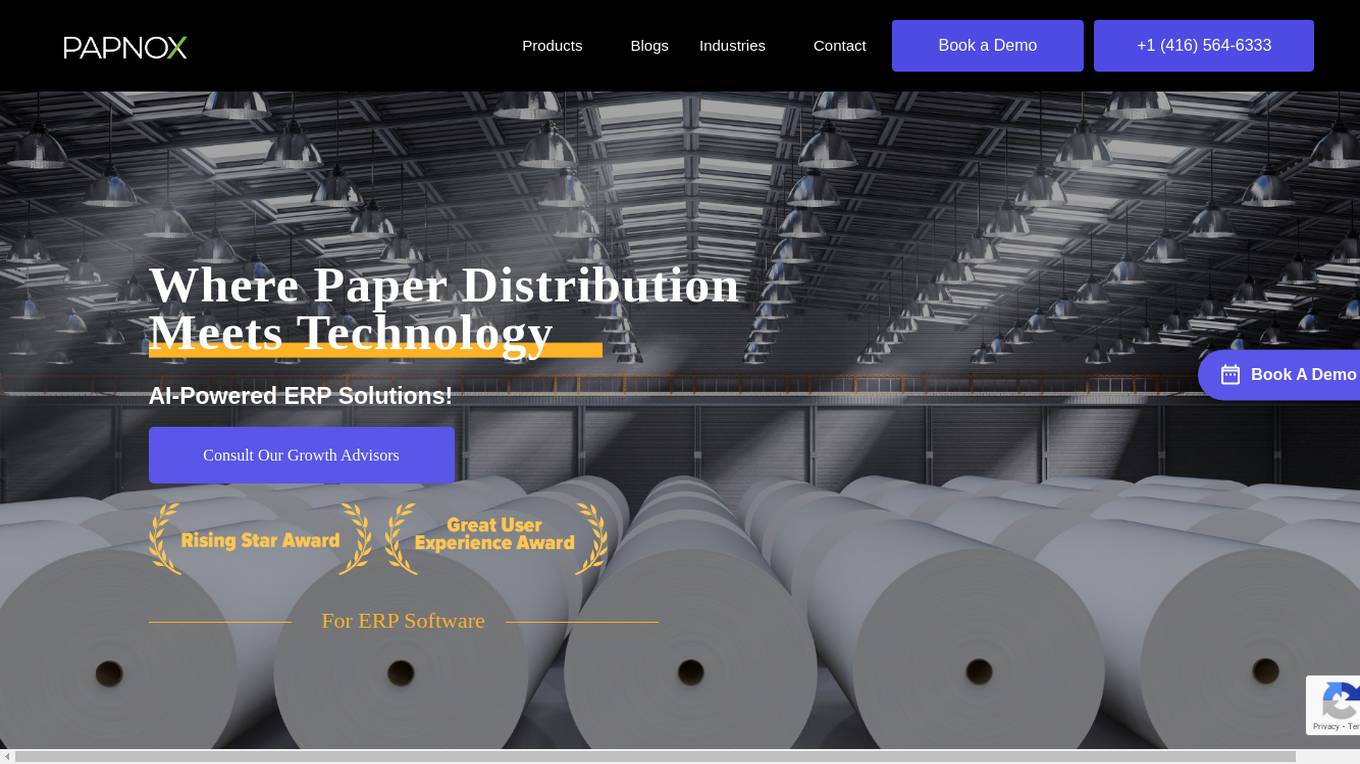
Papnox ERP
Papnox ERP is an AI-powered ERP software designed specifically for paper distributors. It offers cloud-based accounting, invoicing, and inventory management solutions. The platform includes modules for CRM, payroll management, website building, and report generation. Papnox ERP is known for its early adoption of disruptive technologies and provides unique insights into the paper distribution industry. The software aims to streamline business operations and enhance efficiency for paper distributors.
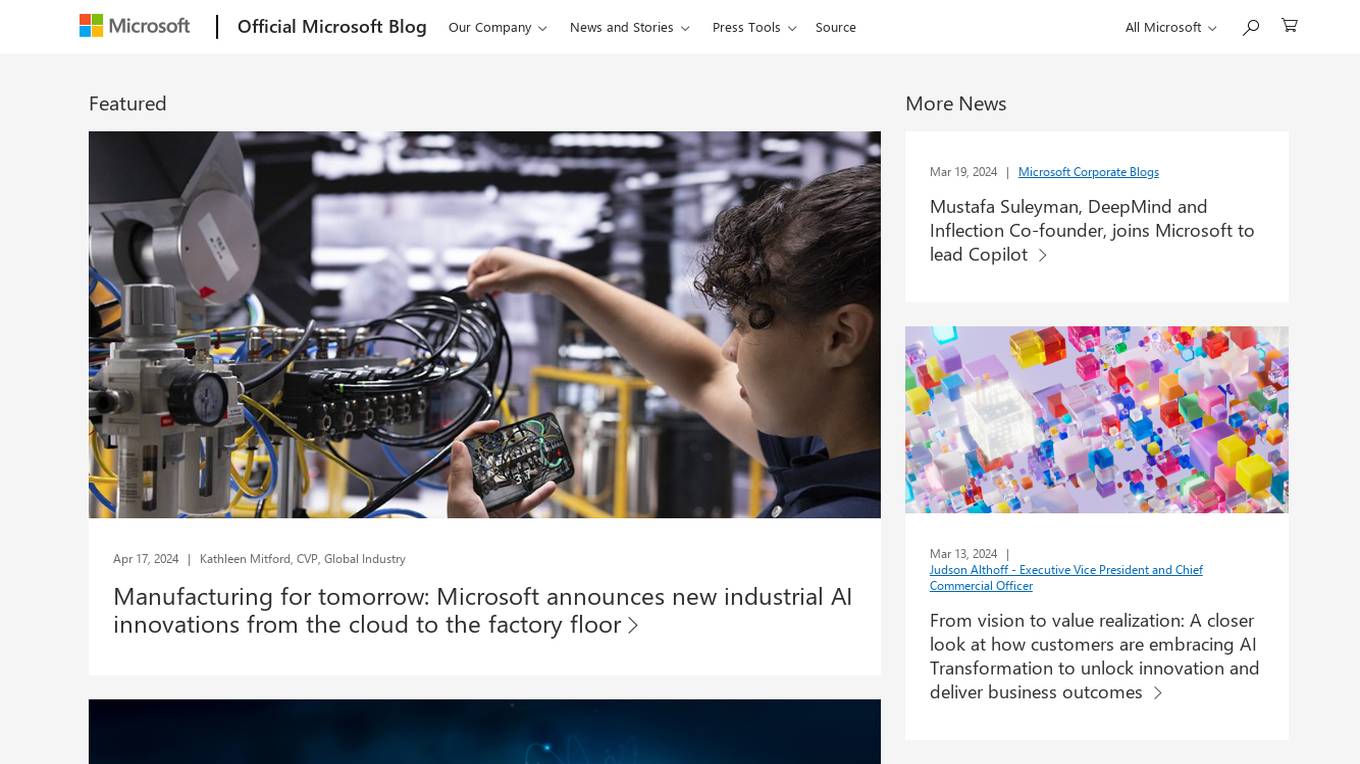
Official Microsoft Blog
The Official Microsoft Blog is the official blog of Microsoft, a leading technology company. The blog covers a wide range of topics, including product announcements, company news, and thought leadership on technology trends. The blog is written by a team of Microsoft employees, including executives, engineers, and product managers.
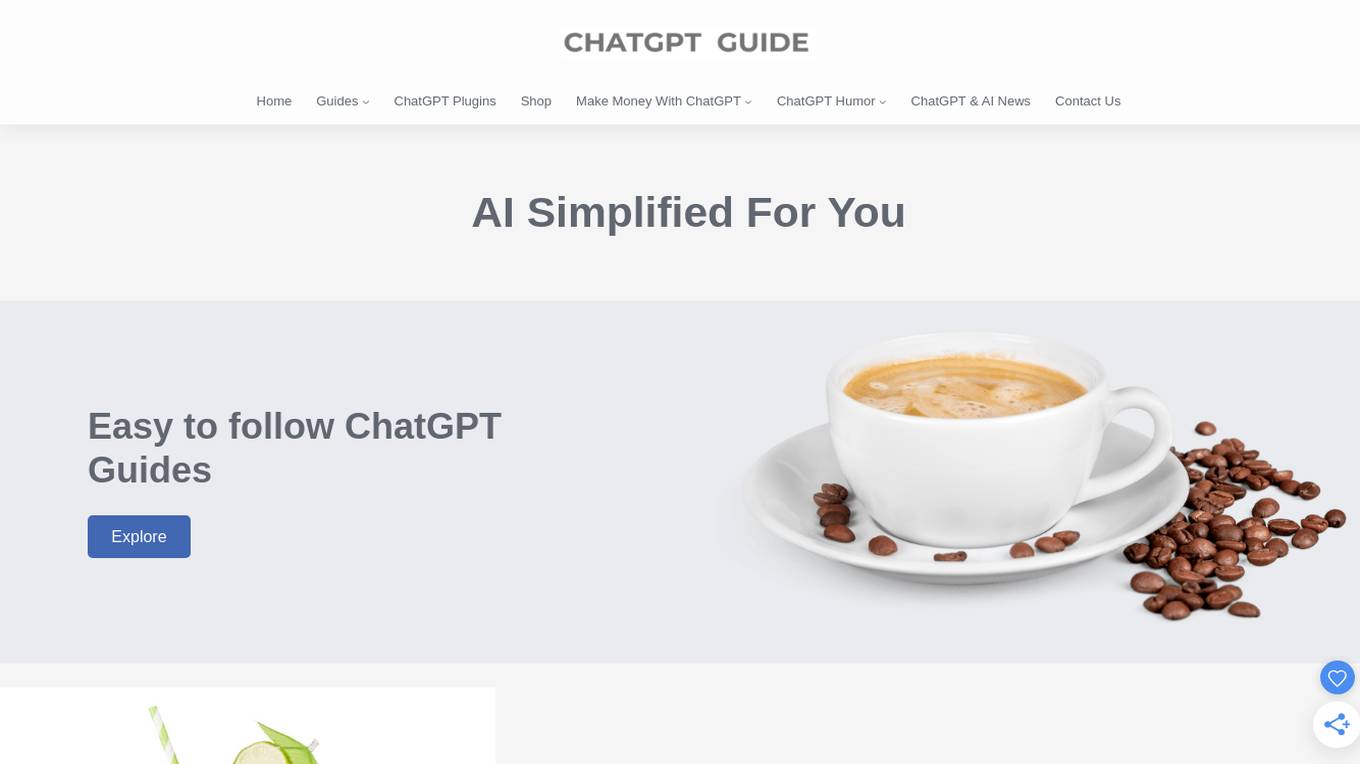
ChatGPTGuide
ChatGPTGuide.ai is an AI tool designed to provide easy-to-follow guides and tips for normal users on various topics such as productivity, career development, personal goals, and more. It offers a wide range of resources and prompts to help users leverage the power of AI, specifically ChatGPT, in their daily tasks and activities. The website aims to simplify complex AI concepts and make them accessible to a broader audience, empowering individuals to enhance their skills and achieve their goals with the help of artificial intelligence.
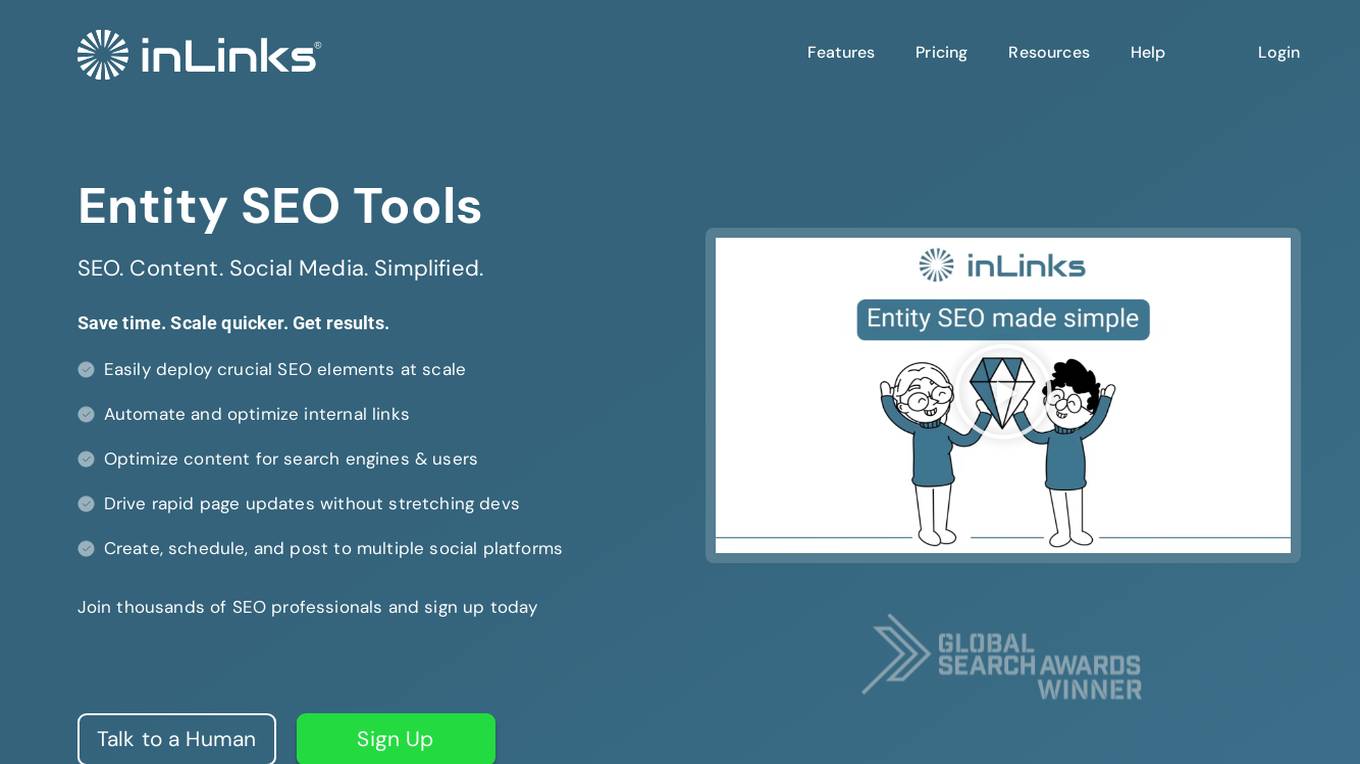
InLinks
InLinks is an AI-powered SEO tool that simplifies SEO, content optimization, and social media management. It helps users save time, scale quicker, and achieve better results by automating internal linking, optimizing content for search engines and users, and driving rapid page updates without developer intervention. InLinks uses a world-class knowledge graph to understand and communicate entities in a way that Google comprehends, ensuring clear and effective content. The tool offers features such as internal linking audit and optimization, comprehensive content optimization, broader keyword research, social media ideation, and posting assistance.
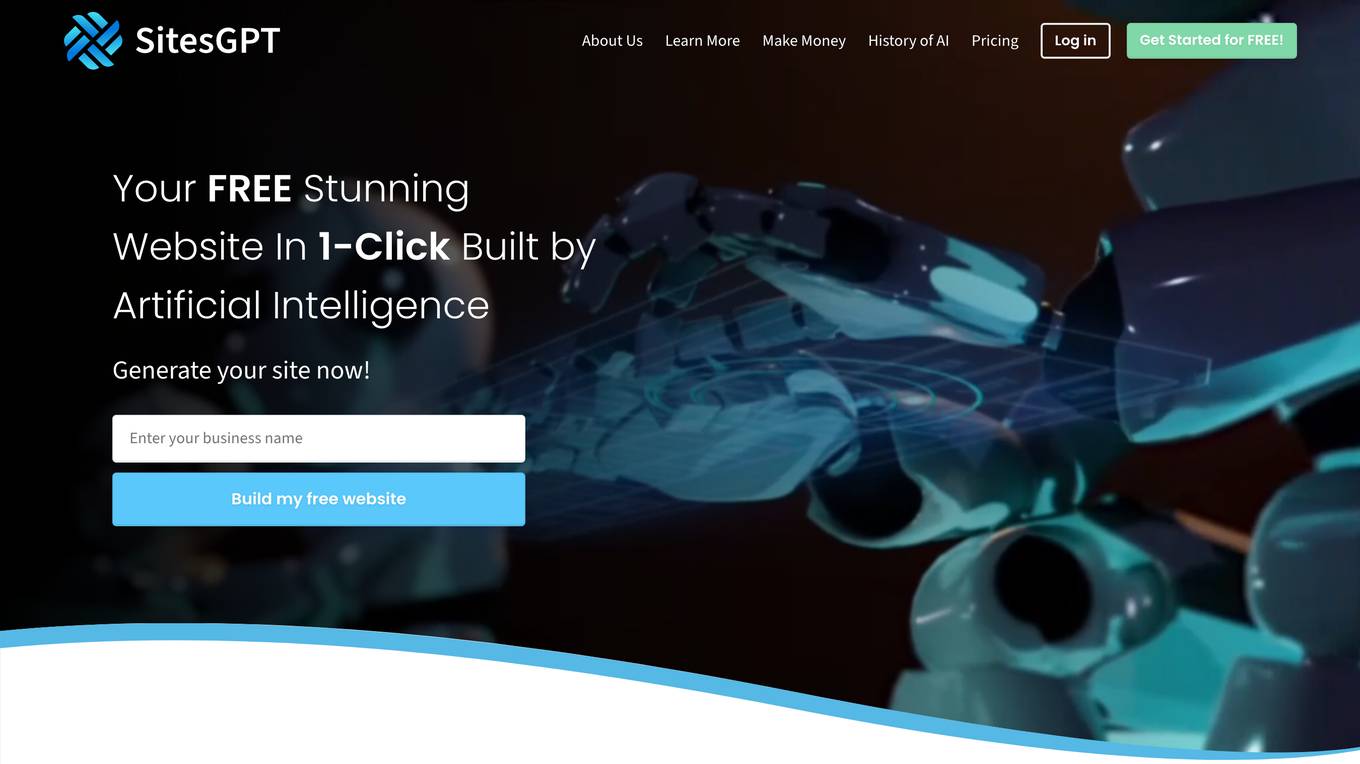
SitesGPT
SitesGPT is a premier AI Website Builder that leverages Artificial Intelligence (AI) technology to revolutionize website creation. It offers a user-friendly platform where individuals and businesses can effortlessly build dynamic, responsive websites with just a few clicks. With features like mobile optimization, unparalleled flexibility, zero cost to start, robust cloud infrastructure, and round-the-clock operation, SitesGPT stands out as a cost-effective and efficient solution for website development. The fusion of AI and website building not only enhances speed and efficiency but also ensures scalability and customization, making professional website creation accessible to a broader audience.
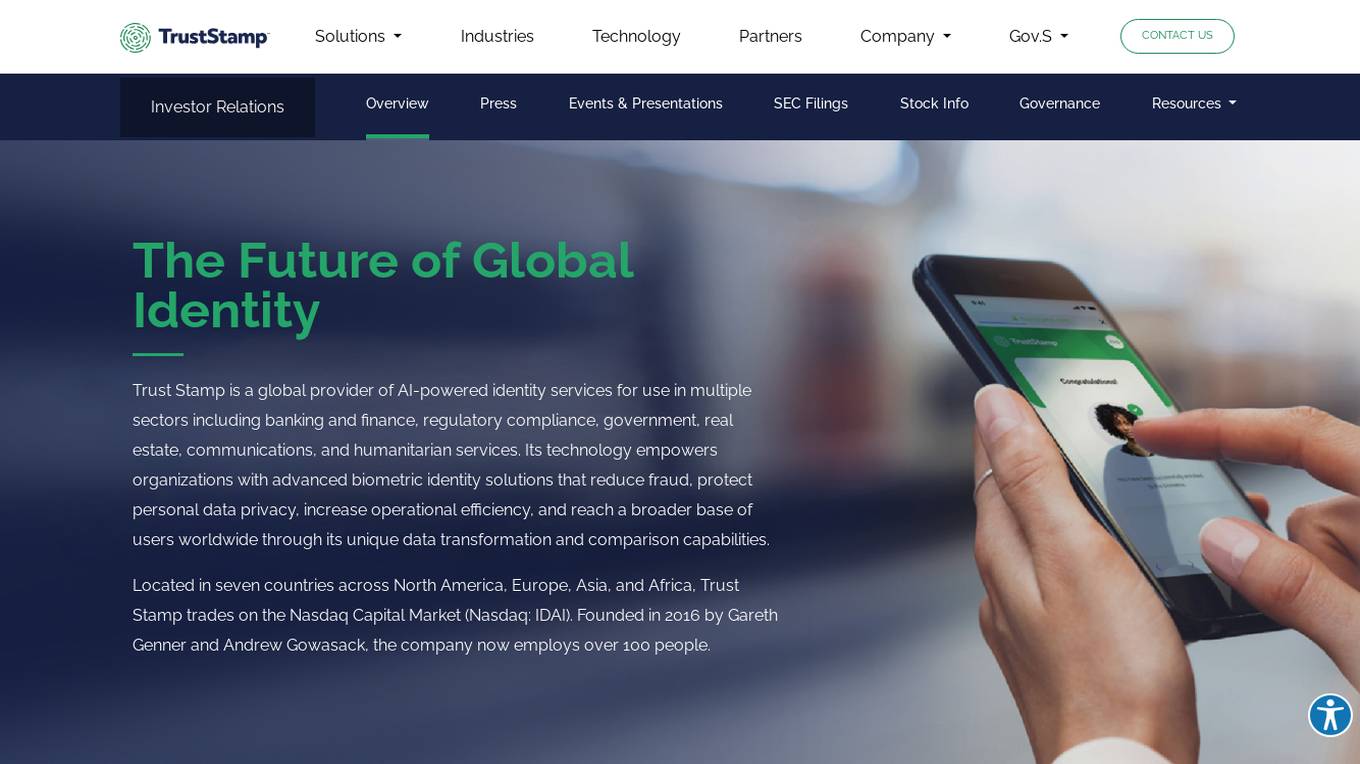
Trust Stamp
Trust Stamp is a global provider of AI-powered identity services offering a full suite of identity tools, including biometric multi-factor authentication, document validation, identity validation, duplicate detection, and geolocation services. The application is designed to empower organizations across various sectors with advanced biometric identity solutions to reduce fraud, protect personal data privacy, increase operational efficiency, and reach a broader user base worldwide through unique data transformation and comparison capabilities. Founded in 2016, Trust Stamp has achieved significant milestones in net sales, gross profit, and strategic partnerships, positioning itself as a leader in the identity verification industry.
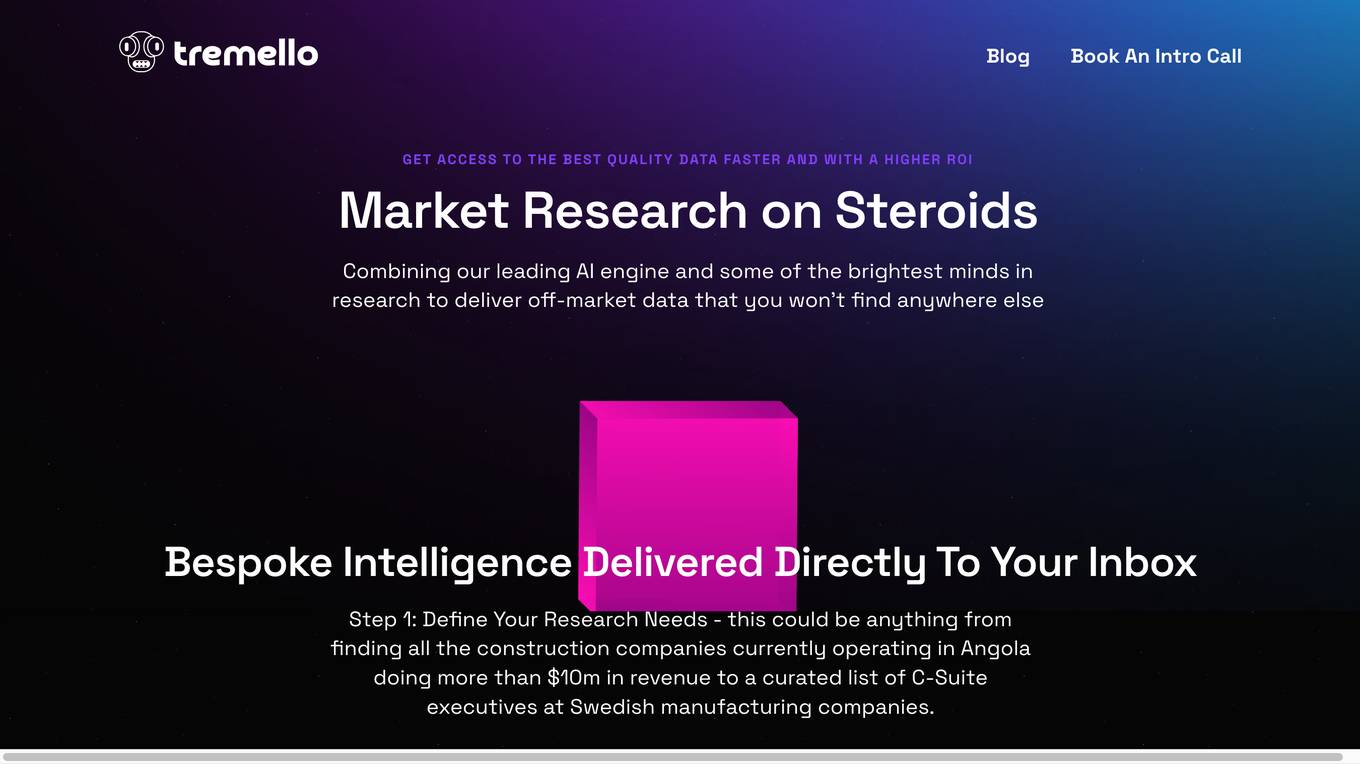
Tremello
Tremello is a market research platform that uses AI to deliver off-market data. It combines a leading AI engine with human experts to provide bespoke intelligence delivered directly to the user's inbox. Tremello's AI analyzes relationships, identifies patterns, and considers the broader context, delivering meaningful and actionable insights on top of a base human layer. It leverages a diverse range of data sources, including public and private databases, industry reports, social media archives, company websites, and government filings, ensuring a complete and comprehensive picture of the research subject.

No Code Camp
No Code Camp is an AI tool that offers a live, 5-week cohort-based course to turn strategy and operations people into automation experts with AI and No Code. The platform enables non-technical individuals to build applications, automate workflows, and develop web platforms using graphical interfaces, AI, and tool configuration instead of writing code. No Code Camp democratizes software development, making it accessible to a broader audience, speeding up the development process, and reducing the reliance on specialized software development skills. The course covers essential topics such as Data Architecture, Interface Design, AI Scaling, and No Code Automation, equipping participants with the skills needed to automate business processes and build internal tools.
0 - Open Source AI Tools
3 - OpenAI Gpts
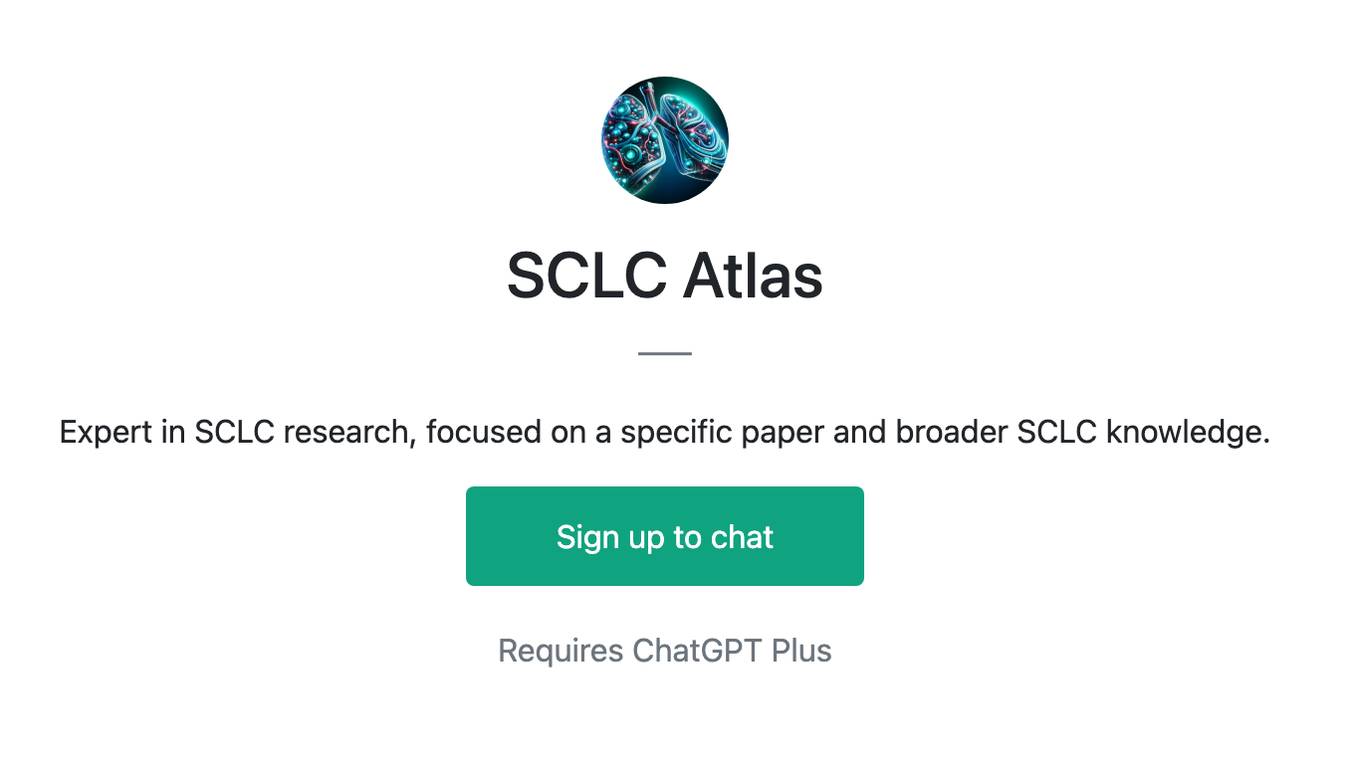
SCLC Atlas
Expert in SCLC research, focused on a specific paper and broader SCLC knowledge.
